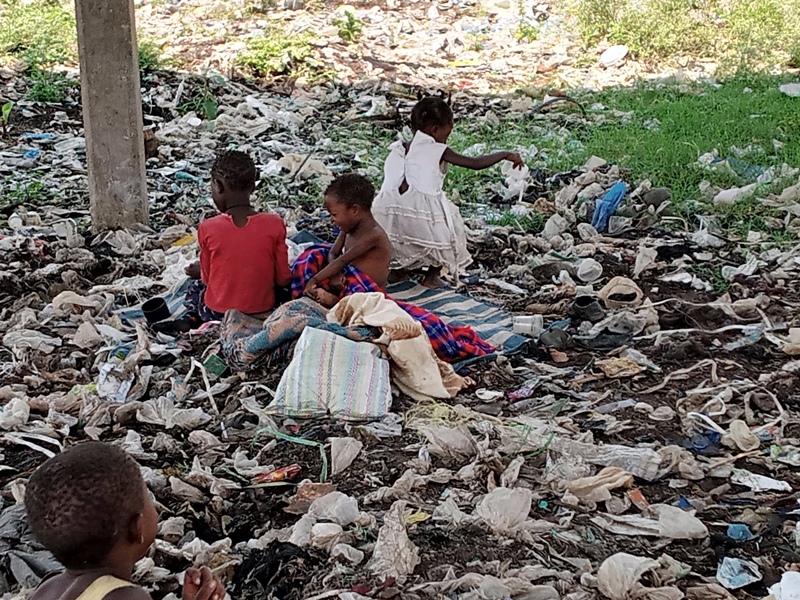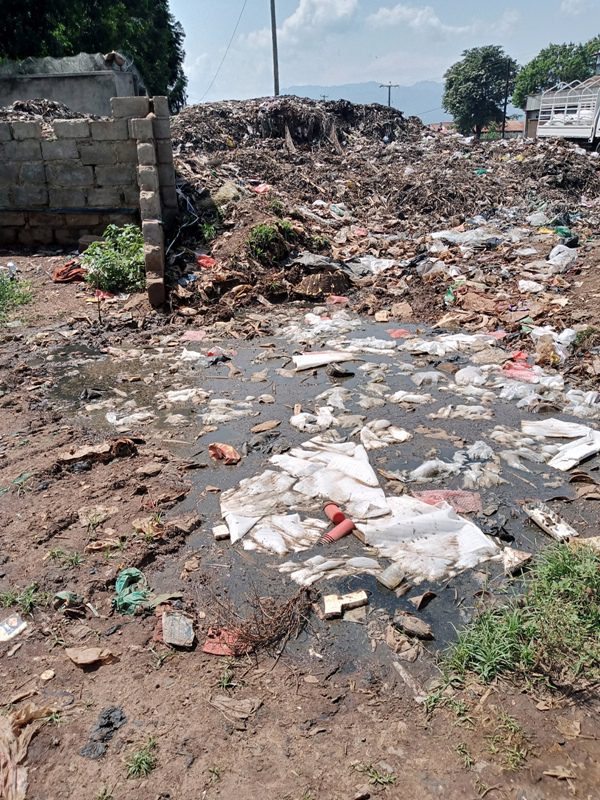
MBALE – The shs1.2 billion [USD300, 000] Mbale Garbage compost plant, which was meant to collect garbage in town and turn it into manure has been abandoned, forgotten and left to rot.
Built-in 2007 in Doko in Mbale industrial City and launched by National Environment Management Authority [NEAMA] in 2009 to address the challenges of solid waste management as part of the carbon trading deal with the World Bank, the compost plant started work in 2010.
Among other benefits was that the town would access funds from the World Bank as part of carbon trading, where rich industrial nations pay for projects that are aimed at reducing global emissions.
A recent visit to the plant found the reputable plant in a sorry state, with no access road to the premises as the road is now covered with heaps of garbage collected from the city, the place has turned bushy; the plant has collapsed.
This is an indication that the Mbale City council has failed to utilize the multi-million shillings World Bank-funded waste management plant to address the challenges of waste.
This reporter observed horribly dilapidated buildings with the roofs ripped off causing them to leak badly anytime it rains and looks like deathtrap to people who illegally go there to collect plastics as their children rest in the buildings.
What welcomes you to the site are heaps of rotten garbage, buildings without roofs and there is no sign that the garbage will be decomposed into manure as stipulated in the original plan of the project.
As I moved through the bush, alongside rotten garbage emitting a nasty smell, I could not see anybody save for the little children and their mothers who kept retrieving plastics from the rotten garbage to go and sell for a living.
Then from the right appeared one man; Noah Mubakye, who asked me, “Have you come to write about this plant or? Please write about it in order for the City council to come and do something about it. Look, it is abandoned, the road is filled up with garbage,” said Noah
“There is a supervisor attached to this plant, even an engineer plus the City Environment Officer but look they never come here, it is now close to four years, we just come here to collect garbage and go and sell it,” Mubakye added.
The garbage that had disappeared from the streets is now the order of the day when you visit Mbale City as the compost plant is not working; the iron sheets to the roof have been stolen.
Although the composite plant was turning garbage into fertilizer instead of leaving it to rot, emitting methane, nothing inspiring seems to be going well in the composite site.
When reached for a comment Ms Rhoda Nyaribi, the Mbale City Environment Officer consented the place was actually abandoned but that they are rethinking and planning to revive it because it benefitted many farmers in terms of manure.
“True, the plant is not working because there is no funding from the World bank and yet our local revenue can’t do much to maintain this big project,” said Ms Nayribi.
She explained that when Covid hit the world, it did not spare the World Bank and National Environment Management Authority [NEMA] because the global Carbon market that was meant to fund the project through Carbon credits could not work out.

Mbale plant was funded by the World Bank and managed by the Uganda National Environment Management Authority, under the Clean Development Mechanism (CDM) and was meant to help provide cheaper fertilizer – about 15 to 20 tonnes per day – to farmers.
It is unclear, if the present woes at the plant, could be linked to incompetence or poor management on the part of those at the helm of the City council’s administration or the result of the longstanding financial problems at the City.
The former LCIII chairman Mr Massa Musa says that the authorities at City Council have failed the project by continuing to tender garbage collection yet the agreement with NEMA was to the effect that the council would take charge of garbage collection.
Mr Massa adds that the facility has also done very little to address the garbage management challenges in Mbale City today but Mr James Kutosi, the public relations officer at Mbale City council, claims the volume of garbage generated in the municipality is more than the plant can handle.
Mr Kutosi also blames the mess on poor funding and explains that sometimes they have no money to fuel the trucks for ferrying garbage to the plant.
Mr Kenneth Khatuli Waniaye, the Mbale City Deputy Town Clerk, agrees with the Environment Officer that there has been a funding challenges but he adds very fast, I am hopeful this will be sorted out soon,”
He revealed that City’s garbage collection trucks also broke down, which has impacted heavily on waste management in the City.
Ms Nyaribi feels that as a City they also need a new site that is bigger than the one that was housing the compost plant because the City has grown and the population has also grown so garbage has more than multiplied.
“Yes, Waste is a resource and waste is gold, we need to help transform this garbage into manure, especially the degradable one while the plastics should be collected and the companies responsible recycle them for use again,” Ms Nyaribi said.
Compositing facilities
The National Environment Management Authority (Nema) with support from the World Bank, constructed nine composting facilities in urban areas of Kabale, Mbarara, Kasese, Fort Portal, Mukono, Jinja, Mbale, Soroti and Lira.
The constructions were meant to ease garbage/waste collection in the town by compositor which would turn the solid waste into manure for people to use in their gardens to increase agricultural production.





